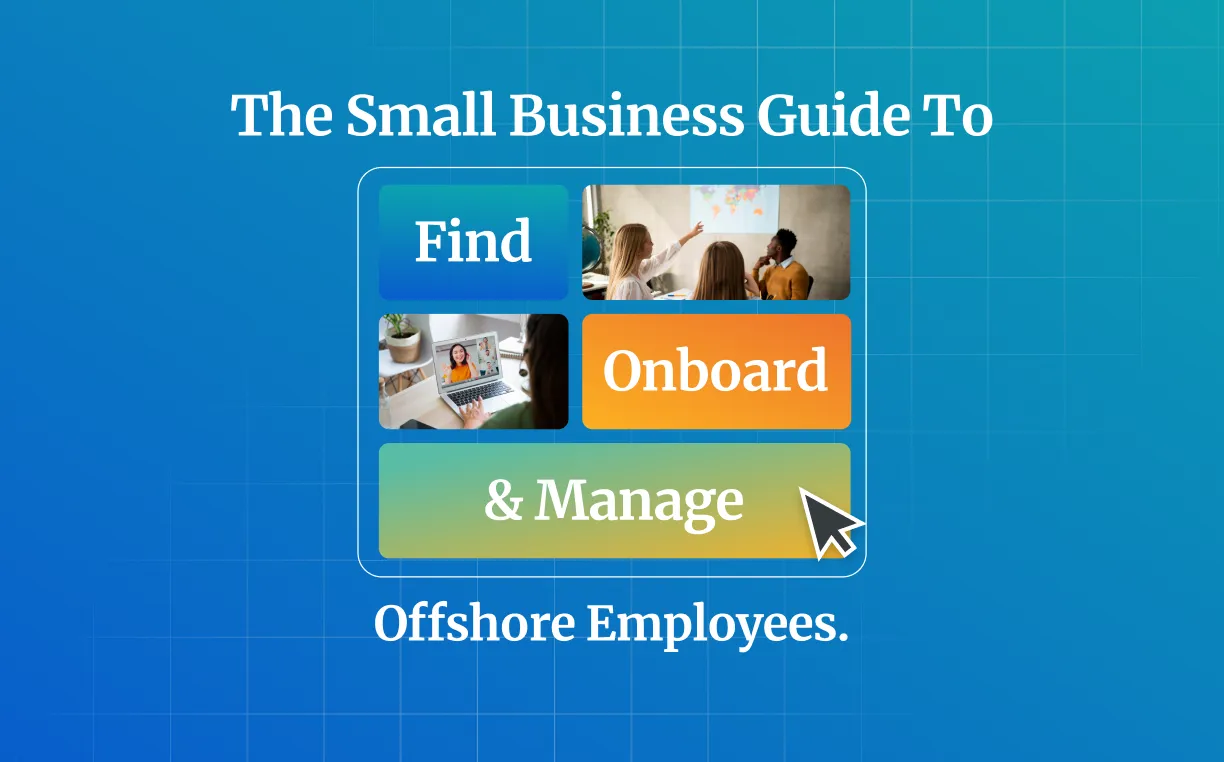How Virtual Staffing Can Beat Inflation
Key Takeaways:
- Domestic labor has become a fixed and growing liability, with inflation, tariffs, and wage increases directly eroding profit margins. Relying exclusively on local hiring now exposes businesses to severe financial pressure.
- Inaction is itself an expensive decision, forcing companies to absorb 100 percent of regional wage inflation and leaving them vulnerable to recessionary shocks, layoffs, and stalled growth.
- Virtual staffing acts as a natural inflation hedge, allowing businesses to tap global labor markets with lower cost of living, more stable wage expectations, and highly skilled professionals across finance, admin, and marketing.
- The cost differential is too large to ignore, with skilled overseas talent available at a fraction of the cost of domestic employees. This shift transforms payroll from a rigid fixed expense into a flexible, strategic cost center.
- Delegation through virtual staffing unlocks real growth, freeing founders from administrative bottlenecks so they can focus on revenue generation, strategy, and high-leverage activities that elevate business performance.
- Global teams create structural resilience, insulating companies from local inflation spikes, talent shortages, and economic shocks. This diversification strengthens continuity, scalability, and long-term competitiveness.
The modern business owner is currently facing a strategic dilemma: how do you manage rising operational costs without sacrificing quality or growth? Macro-economic forces like inflation and tariff pressures are no longer abstract threats; they are directly eroding profit margins and making domestic labor increasingly rigid. This is not a temporary dip, it is a new economic reality demanding a structural pivot.
The solution is a necessary strategic hedge against economic volatility. Faced with these threats, many small businesses are delaying capital investments, while others are sadly going out of business entirely. However, among the most effective countermeasures is to address labor, the largest controllable expense, by positioning Virtual Staffing as the key to long-term survival and scale.
The Core Challenge: Why Domestic Labor Is a Fixed Liability
A reliance on a local talent pool creates a rigid payroll that is financially vulnerable to macroeconomic pressures. When the cost of everything rises, the cost of labor soon follows, transforming your largest operational expense into a growing liability. This structural flaw exposes your business to economic shocks, making it imperative to examine three specific pain points that threaten your solvency.
The Cost of Living is Now a Cost of Business
The current inflationary climate immediately translates into a heavier and unavoidable operational burden for small businesses, eroding profit margins faster than they can be replenished. Data confirms this trend: the Consumer Price Index for All Urban Consumers (CPI-U) increased 2.9 percent for the 12 months ending in August 2025, while total compensation costs for private industry workers grew by an even higher 3.5 percent during the same period. This differential means that wage growth alone is consuming revenue at an accelerated and non-negotiable rate.
Beyond direct compensation, this financial pressure is compounded by severe non-wage factors, including a shrinking domestic labor force and rising input costs due as a result of global tariffs. When faced with this dual threat, founders are often forced into non-strategic decisions, such as delaying crucial investments in technology or marketing, just to absorb immediate employee costs. This results in a dangerous stagnation where the business sacrifices long-term growth potential simply to survive the current market conditions.
The Salary Race You Cannot Win
The relentless pressure to continually raise domestic wages to meet cost-of-living expectations puts severe strain on cash reserves in a zero-sum competition for a limited local talent pool. Every competitor is chasing the same set of candidates, which artificially inflates prices and traps your business in an expensive and unsustainable cycle that drains resources without guaranteeing long-term loyalty. This environment forces founders to spend premium dollars for talent that may be readily available at a fraction of the cost elsewhere.
Ultimately, constant competition for local talent directly impacts the bottom line through increased talent acquisition costs and higher churn rates among existing staff. Every dollar spent overpaying for a position that could be effectively filled overseas is a dollar that cannot be allocated toward strategic growth, new product development, or essential market penetration efforts. The cost of a domestic employee quickly becomes a budget constraint on the entire organization's potential.
Why Inaction is a Financial Decision
Failing to re-evaluate your fixed-cost hiring model in this economic climate is, in itself, a definitive and costly financial decision, forcing your business to absorb 100% of regional wage inflation. This resulting lack of flexibility against an uncontrollable labor expense creates a significant vulnerability for growing businesses that need to remain agile to seize new market opportunities. The business is left structurally exposed.
The long-term danger of inaction is clear: when a recessionary shock hits, a business built on high-cost domestic labor has limited options for cost control other than painful restructuring or mass layoffs. This vulnerability underscores the need for proactive analysis that looks beyond common indicators to anticipate and mitigate risk, which is the subject of our deep dive on the Federal Reserve and interest rates.
The Strategic Pivot: Virtual Staffing Is a Natural Inflation Hedge
The path to breaking free from domestic wage pressure is through strategic diversification. Shifting non-core, high-skill administrative and financial labor to a virtual staffing model is the most effective strategic hedge against domestic inflation. This approach provides immediate cost relief while simultaneously increasing the quality of your talent pool, as demonstrated through three clear strategic advantages.
Accessing a World of Competitive Labor Markets
Virtual Staffing allows businesses to immediately escape the hyper-competitive domestic salary race by accessing a global talent pool where the cost of living — and therefore the salary expectation — is naturally lower. This strategic move optimizes for talent quality without imposing budget strain, directly solving the problem of high-cost domestic recruitment. A recent study specifically showed that businesses can save an average of 67% in operating costs by utilizing virtual assistants, directly mitigating the inflationary pressure felt across the domestic market.
This cost-effective access is not simply about finding "cheap" labor; it is about accessing skilled and affordable talent that is highly motivated and proficient in specialized areas like bookkeeping, accounting, or digital marketing. By hiring where the talent is concentrated and the wages are competitive, you ensure quality of service and expertise remains high, allowing you to maintain financial health while competitors struggle to contain costs.
From Fixed Payroll to a Flexible Cost Center
The data reveals a stark and undeniable difference in labor costs that must inform modern payroll strategy. The average salary is approximately $3,743 in New York, while a highly skilled counterpart in the Philippines costs approximately $400 per month. This strategic differential is the key to transforming your payroll from a heavy fixed liability into a flexible cost center.
Such a cost advantage enables a founder to rapidly staff up entire departments, such as a dedicated team of offshore bookkeepers, at a fraction of the cost of one domestic employee. This newfound financial flexibility allows you to invest capital in critical, non-revenue-generating functions, like rigorous financial controls, that might otherwise be neglected due to budget constraints, all while positioning for growth.
The Power of Location-Independent Operations
The core benefit of virtual staffing is not just low cost, but geographic insulation, which is the ultimate form of strategic resilience. By diversifying your talent across various economies, your labor costs are no longer beholden to the localized inflationary spikes and labor shortages of a single region. This diversification makes your business inherently more anti-fragile in the face of domestic economic uncertainty.
Crucially, this strategy mitigates operational risks far beyond inflation by protecting your operations from the economic or political shocks of a single country or city. Ensuring that your labor supply is geographically distributed guarantees better business continuity and stability, which is a key competitive advantage that businesses with fixed, localized teams cannot replicate.
Unlocking Value: Strategic Delegation Is the Engine of Scale
The financial benefits of Virtual Staffing are only the first step toward optimization. The true value is realized when this talent enables the founder or executive to strategically delegate administrative burdens, allowing them to finally focus on scalable, high-leverage revenue generation. This strategic realization can be broken down into three fundamental shifts in how you allocate your executive time.
The CEO's Dilemma: Working On the Business, Not In It
Leaders who fail to delegate often remain trapped in low-value operational duties, consuming valuable time that should be spent on strategic growth and vision. Studies show that entrepreneurs spend a staggering 36% of their workweek on administrative tasks such as email management, invoicing, and scheduling. This time spent on repetitive, non-scalable tasks directly prevents the CEO from focusing on high-value, strategic work like sales, innovation, and leadership.
The core issue is that this "CEO bottleneck" becomes the single greatest inhibitor to growth, as the most expensive and strategically essential person in the company is consumed by tactical quicksand. Virtual Staffing provides the skilled human capital necessary to free the founder from this daily admin cycle, allowing the executive function to perform its intended role: architecture and strategy. This is the subject of our in-depth analysis on the delegation journey.
How to Build a "Systems, Not Superheroes" Framework
The necessary solution is strategic delegation, which moves beyond relying on a single, expensive domestic employee to "do it all." Virtual Staffing enables you to delegate specific, repeatable processes to specialized, affordable global talent, fundamentally building scalable business systems. Leaders who delegate effectively consistently generate 33% more revenue than those who do not, proving that strategic delegation directly translates to bottom-line growth and improved valuation.
This framework allows the founder to transition from being the company's reactive "superhero" to its proactive "chief architect," creating predictable systems that run without constant executive oversight. By assigning specialized tasks to focused, highly capable overseas virtual assistants, the business gains reliability, repeatability, and systemic efficiency across all major departments.
Delegating for Growth, Not Just Savings
By strategically outsourcing staffing for non-core functions, you free up executive bandwidth to work on the business's long-term vision, which is a profound shift that enables business model evolution and new market penetration. This focused effort ensures that cost savings are immediately reinvested into scalable growth levers. Companies led by entrepreneurs with high "Delegator talent," for example, created 21 new jobs, compared with 17 new jobs created by those with lower delegation abilities.
This expansion of executive bandwidth also allows a shift to more efficient communication models. The ability to trust a virtual team with essential operational tasks allows the founder to execute on the vision, leading to revenue generation that transforms initial cost savings into a massive competitive advantage, and is a key concept in our guide to Asynchronous: A Cheat Code to Elevate Your Business.
The Imperative for the Modern Founder
The logic is undeniable: the inflationary environment has made the traditional domestic hiring model a financial hazard and a strategic liability. To achieve resilience, stringent cost control, and scalable growth, the immediate shift to a virtual staffing strategy is no longer optional. It is a logical imperative for business survival.
This is the strategic move that sophisticated competitors are making now to recession-proof their operations and increase their market advantage. The question is no longer if you need a global team, but when you will build it to capture the compounding advantages of a resilient payroll structure.
By transforming your fixed payroll liability into a flexible, global talent asset, you hedge against inflation and position your business for aggressive growth. This is the blueprint for creating a business that is structurally designed to thrive in any economic climate, ensuring resources are allocated based on strategic need, not market desperation.
Your Strategic Partner for This Necessary Evolution
Successfully navigating this transformative shift requires a partner with proven expertise in vetting and managing international talent, ensuring compliance and quality without the operational headache. A strategic partner can provide the highly-skilled offshore bookkeepers and overseas virtual assistants needed to execute this essential economic strategy, allowing you to focus on leading your business forward.
The time for strategic change is now, not when the next economic shock forces your hand. Do not let the fixed-cost liability of outdated hiring models continue to erode your margins and limit your scalability.
AbroadWorks specializes in providing the exact talent and compliance framework necessary to execute this strategic pivot, connecting you with vetted, high-quality, and affordable global professionals. Take control of your payroll and transform your business's financial vulnerability into its greatest competitive strength.






